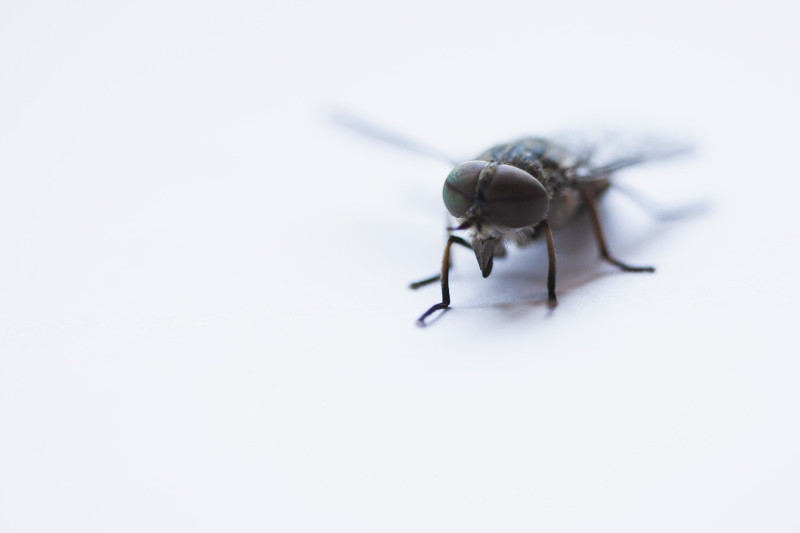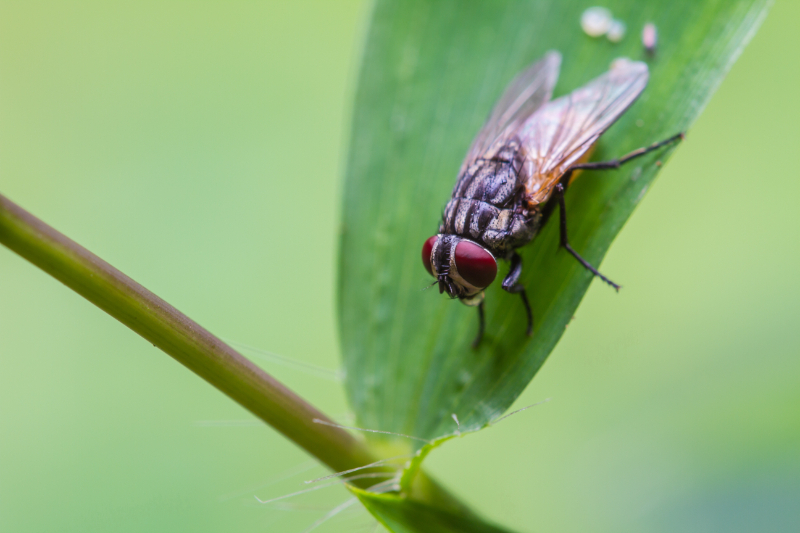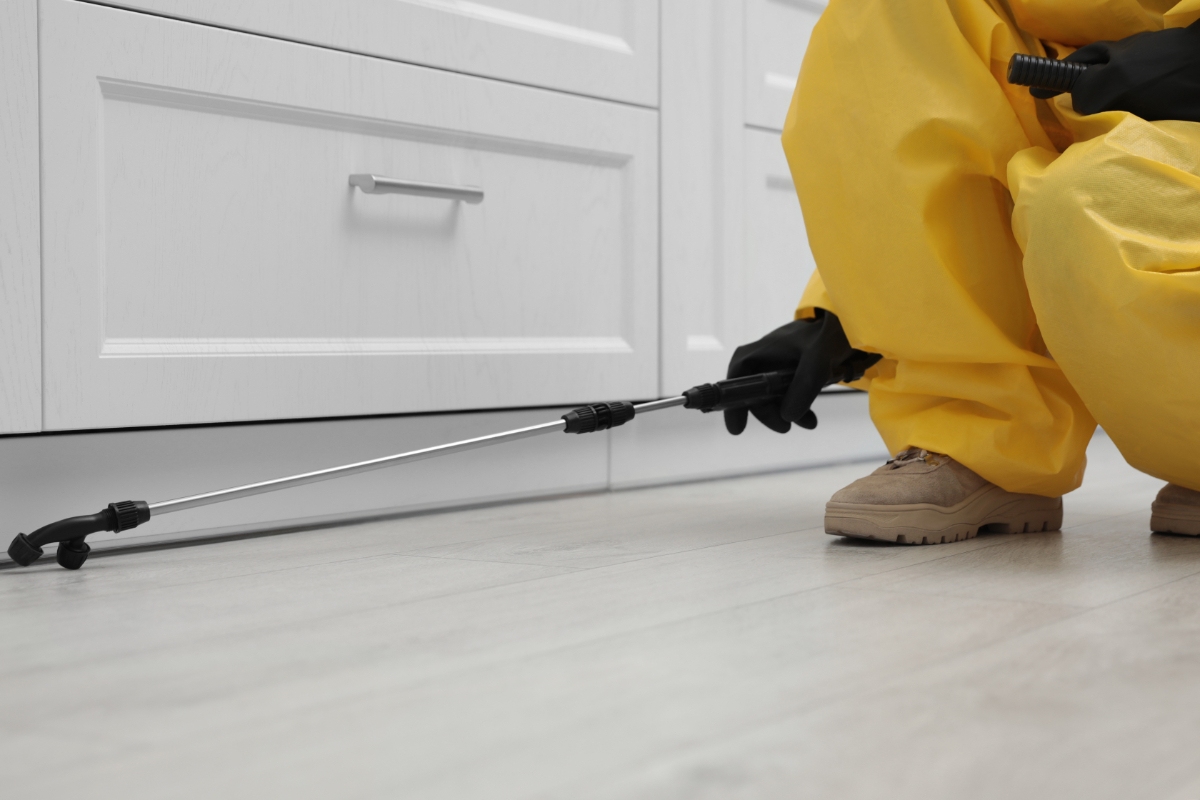How do you get rid of a cluster fly infestation? This article looks at how cluster flies can get into your home and how to control cluster flies.
Having pests in your home is an irritating and sometimes frightening thought. They can be disgusting and spread diseases and imply to guests that you don't have proper cleaning methods in your home. This is especially true for cluster flies, as they will choose to hibernate in your property over the colder months.
How do cluster flies get into our home?

Like most species of fly, the cluster fly doesn't need much space to get into your home. They can, of course, get in through any open windows and doors, but also can get through smaller gaps in roof eaves and any pipe and cable openings.
Measuring between 8-10 millimetres, a cluster fly is able to enter through any wall void or hole. Adult flies are even going to be small, and don't need much to get into the house. Cluster flies are a common pest across the UK, especially from August onwards.
Despite not appearing outside till around Spring, they are known to hibernate and nest in our homes over winter, as they prove warmer inside than outside.
How to identify cluster flies
It's important to identify cluster flies immediately before they're allowed to breed and multiply. Cluster flies don't bite, and can't spread diseases that way, but they can still spread diseases and illness through their faeces and attract other pests.
You will be able to notice you have some form of fly infestation when you notice an increase in dead flies, especially in areas such as your loft/attic or in warmer parts of your house, such as windowsills that attract the sun. Cluster flies are dark grey, and will resemble that of a common housefly, but will be larger. They will typically move slower also, so you'll be able to tell the difference.
Once they've decided to make a nest in your home, they won't naturally leave until Spring comes around and it starts getting warmer outside. Due to our temperature-controlled houses, the flies are unable to differentiate what time of year it is and decide to come into the warmth for the best survival chances.
You will find that the best defense measure to get rid of cluster flies is smoke bombs and foggers, which can be deadly and harmful to you and your family if not performed correctly.
These methods deal with strong chemicals and the fumes produced can be deadly. You should enquire with a professional exterminator or pest control expert before handling this issue yourself.

Controlling Cluster Flies
Unfortunately, controlling cluster flies is an annual occurrence, as they will continue to enter your home, but once you've best understood how they're noticed, you will be better at stopping them before it's too late. You will want the most treatment to be done in your loft as that will see the best results against cluster fly nesting, but generally, the pheromones left will attract more flies the following year.
Here are three ways you can control cluster flies in your home:
Aerosols
You can install an aerosol dispenser within your loft space, one that works automatically and sprays cluster fly killer. This can be set to automatically spray throughout the day to best suit the size of your roof, meaning that any sized infestation can be battled with this.
You can also prevent dead fly build up around windowsills, and hopefully prevent cluster flies entirely from being in the home, by spraying the frames with insecticides.
Electric fly killers
The use of electric fly killers is also popular, and many are designed specifically for the use against cluster flies. Most machines are efficient at killing the flies and, more importantly, collecting the dead ones in a fly catch tray.
This means the easy disposal and capture of thousands of flies in some cases. It's worth noting that improper use of an electric fly killer is a huge fire risk and professional opinions should be sought out before the use of one
Power foggers/ Smoke bombs
As mentioned above, power foggers or smoke bombs are some of the best defences against cluster flies but can be more dangerous than any other preventive measure. Any form of fumigation device such as this is incredibly effective but may need multiple treatments.
The first treatment of such chemicals may eradicate any cluster flies within the house, but more will be able to nest if other measures are not taken.
The same goes for larger properties, where the roof space is bigger and could house more cluster flies.
What are the risks/diseases of cluster flies?
Spreading disease
Cluster flies don't prove deadly to humans themselves, as they're unable to bite or spread disease that way. Other species of fly can prove deadly and spread disease very easily. Cluster flies are no different in the sense that they are able to spread disease through their faeces and excrement.
Excrement
If your house has a cluster fly infestation then you will notice a large amount of excrement around the walls and floors and could begin to produce a strong odour. This can become displeasing and embarrassing, but can also prove more deadly around food.
Attracting other pests
Furthermore, if these are left to thrive in your home, then more pests will become attracted to the smell and increase in fly population, meaning that other insects, mice, etc will get into your home.
If you notice an increase in flies in your home, you should be careful to not leave food unattended, as any form of excrement near or on the food preparation area can lead to illness.
What's the difference between cluster flies and other houseflies

When dealing with different fly species, it's important to understand the differences. Most preventive measures will be the same, but certain species of flies prove more deadly to humans and can spread diseases such as E-coli.
Cluster flies will appear bigger and slower than most houseflies, measuring up to 8mm. They will be darker and can have gold patches of hair on their thorax. Of course, when a fly is moving around the home, there's little time to sit down and inspect the colours on it.
However, you should be able to tell the difference between cluster flies and houseflies, or even a bluebottle fly, as they will move slower and appear more sluggish. Bluebottle flies are more often going to be purple or blue in colour, and are more attracted to food waste.
The time of year is always a good indicator of identifying houseflies, as they will invade our homes over the colder months. Be sure to keep your eyes peeled, especially over Winter. The sooner you're able to notice a cluster fly infestation, the better, as they will attempt to lay their eggs in the cracks and crevices in your home.
Contact us today to help get your cluster fly infestation problem a thing of the past.
Are you looking for cluster fly removal?
Do you have a cluster fly problem in Burton upon Trent or Staffordshire?
If you would like to find out more information about cluster fly control services we offer follow the link below.
cluster fly control


